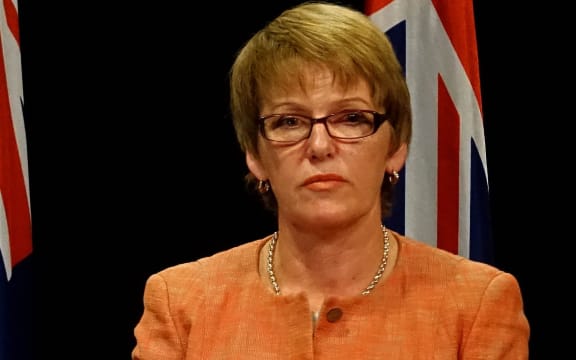Some budgeting advisers are worried changes to the way their services are funded will mean younger people are helped at the expense of the elderly.

The new contract was geared towards getting younger people off benefits and back to work, said one budgeting adviser. Photo: 123RF
The Ministry of Social Development has launched what it describes as a "major shift" in how it funds and supports budget services.
But Grey Power and budgeting advisers, who have seen the new contract fear, it will reduce services for clients, including the elderly.
One budgeting adviser said the new contract was geared towards getting younger people off benefits and back to work, rather than assisting the elderly on fixed incomes.
The adviser, who RNZ News agreed not to identify, said older people were vulnerable and many struggled to meet the cost of basics like medicines and rent.
"Their medicines, Work and Income will purchase a quarter of the bottle because that's all the ability that Work and Income allow for, so the clients aren't getting the pills because they haven't got the money for it.
"Now their rents have gone up. I've got one superannuitant whose rent has gone up by $70 a week. 'That's exactly what we had for food,' they said."
Grey Power national president Tom O'Connor said many elderly people hesitated to talk about their private income issues and didn't seek help until they were at crisis point.
"At that stage the most important thing a budget service does is negotiate with the debtors to allow debts to be paid off in a manner that normally wouldn't be allowed.
"The fact that a budgeting service has got involved generally gives the debtor some confidence that the debt will be paid off eventually," Mr O'Connor said.
But he said those negotiations often took more than a couple of sessions.

Jo Goodhew Photo: Radio NZ / Alexander Robertson
Associate Minister for Social Development Jo Goodhew said the new system was not geared towards a particular age demographic and there was no limit to the number of sessions a client could access.
"The goal for building financial capability is to enable clients to no longer need assistance with their financial decisions.
"There have been some unfounded assumptions made that there will only be a certain number of sessions available to each client. This is incorrect. The clients that return on a regular basis without building their financial capability have been failed by the current service," said Ms Goodhew.
"Financial capability services will be provided on an as-needed basis. Some clients may only need a couple of sessions for a particular issue, while others may require some group based work, or more intensive one on one sessions."
Despite this assurance, the new contract specifically says the government will fund no more than 105,008 sessions a year until 2020.
With an estimated 50,000 people accessing budgeting services annually, that is two government funded sessions per client.
The contract also made clear the government's contribution falls short of what is required and suggested budgeting advisers look elsewhere - like the voluntary sector.
Mr O'Connor, who has worked in a government department and in the voluntary sector, questioned whether that would work.
"Most volunteer organisations, they don't have the time or the resources and sometimes the training to work at the bureaucratic level required of government departments.
"We'll lose volunteers, if we put too much pressure on them in doing things that they don't think are useful, like the government department paperwork - they will simply walk away," he said.
Ms Goodhew said the government had always only been a partial funder of the sector and it was up to each service to determine what mix of paid and volunteer staff they used.
She said the government needed more information to determine whether the service was benefiting people.
Ms Goodhew said the proposal was still being finalised and the Ministry of Social Development would work with advisers to develop a new model.
The country's 170 budgeting services are currently reapplying for their funding and will know in September whether they've been successful, with the new service launching from November.




